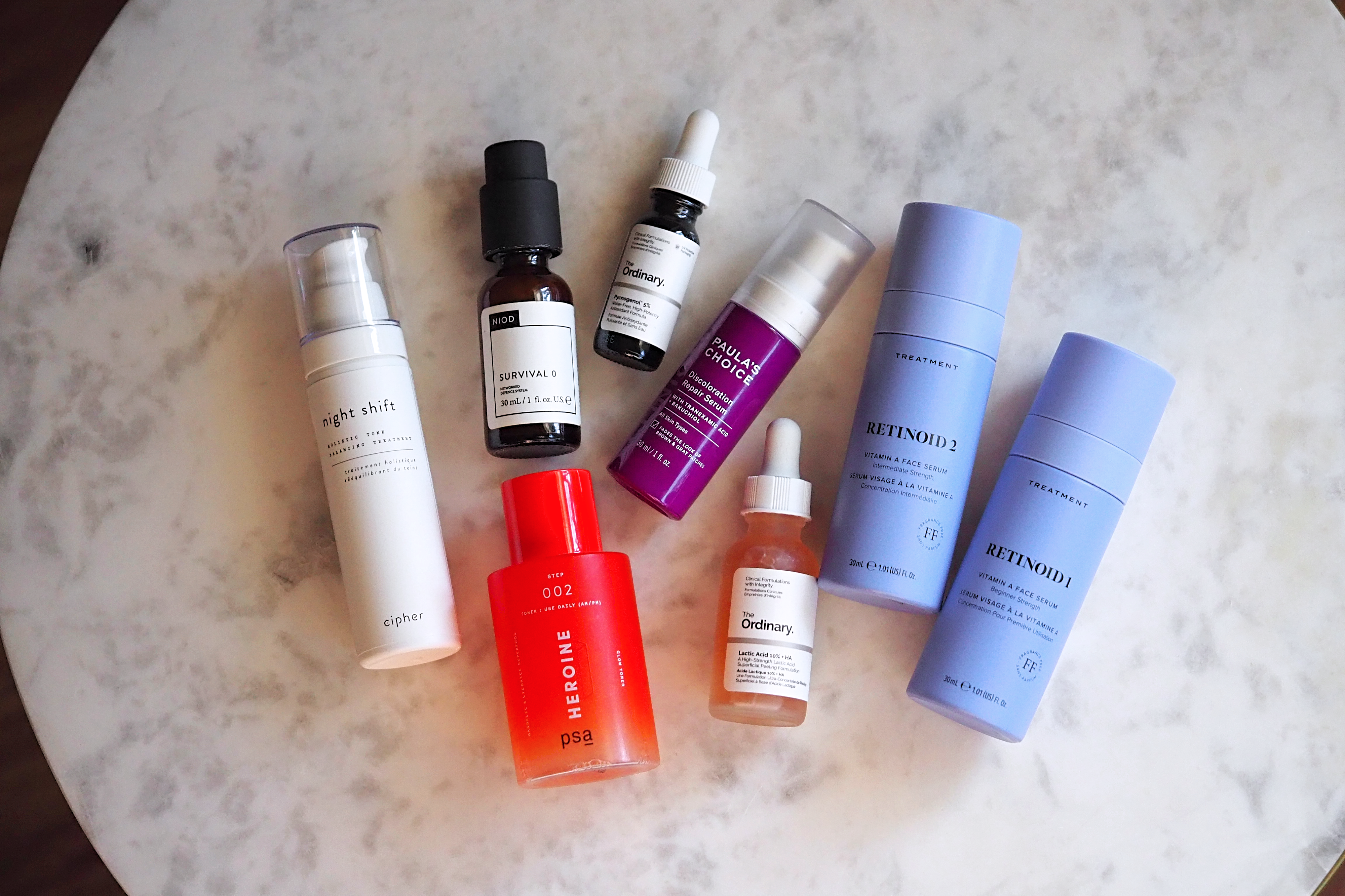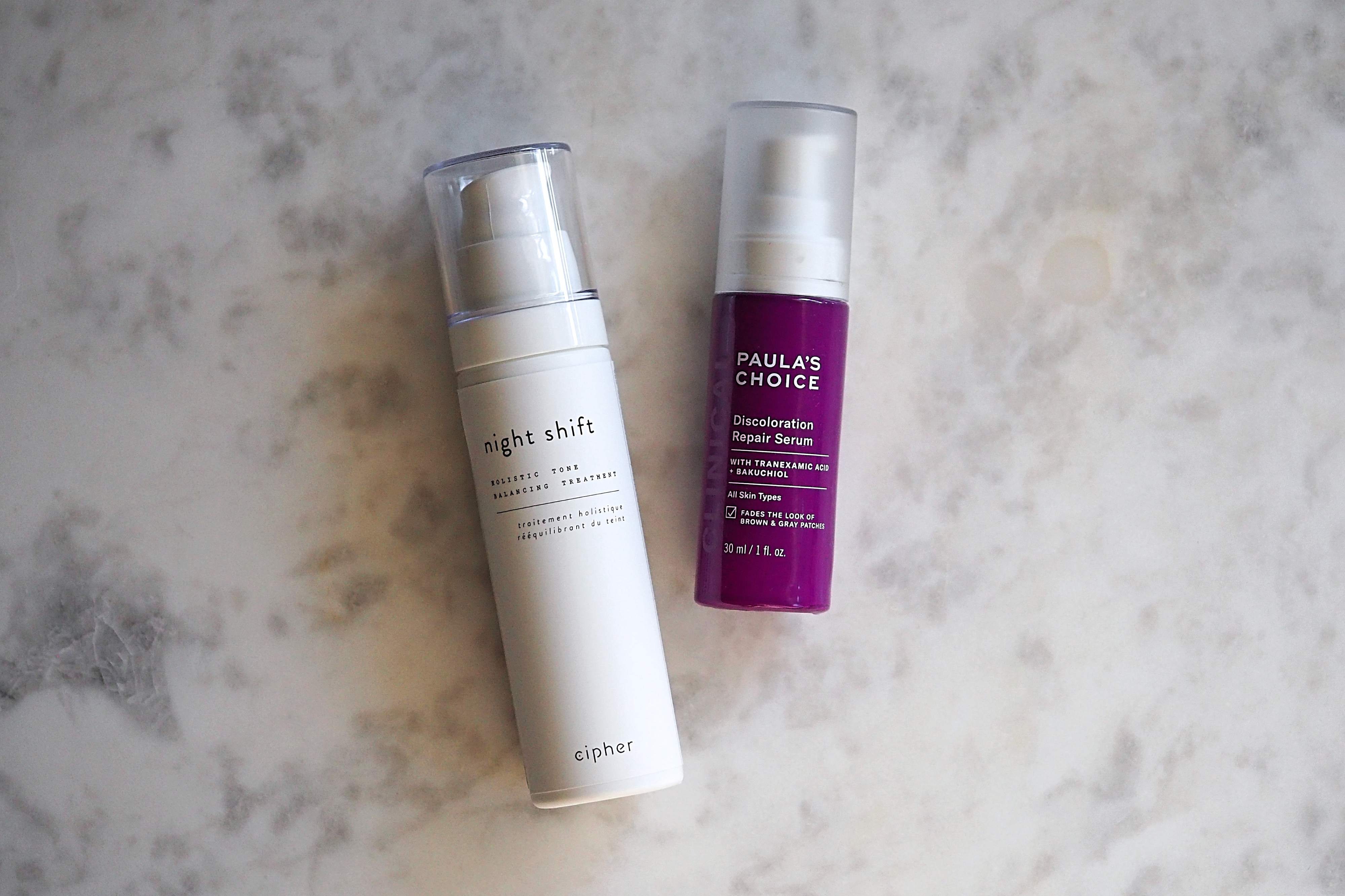- Advertisement information: this post discusses items gifted to me with no obligation to share them (marked *). In addition I have / have had a brand relationship with Deciem / Niod / the Ordinary (gifting). My blog has Skimlinks and RewardStyle installed to automatically monetise purchases of products I link on my blog, therefore this post may contain affiliate links. All opinions remain my own and please refer to my Disclosure Page for further detail -
In my Vitamin C guide we've covered off: pure-form Vitamin C (ascorbic acid) plus some Skinceuticals dupes as an added bonus, Vitamin C derivatives and now we're talking through some ingredients that act as alternatives to Vitamin C if you just haven't found an option you think would work for you 100% in this series so far. So, let's run through some types of ingredients that cover off the same bases but don't have the same drawbacks...
One of the many benefits of Vitamin C and its derivatives is that it's a tyrosinase-inhibitor, meaning that it interrupts the activity of the hormone that tells our skin to produce excess pigment following injury (which is how even relatively short-term spots can turn into long-lasting dark marks). Additionally, there are ingredients that can help fade older scarring and prevent discolouration from spreading through the skin. Honestly, when it comes to achieving an even skin tone; I do actually recommend using a number of ingredients as opposed to relying on one anyway. So, if Vitamin C doesn't fit into your daily skincare routine, I recommend trying out ingredients such as:
You might like to try...
Another reason people love Vitamin C is because it just gives your skin a gorgeous glow. However, using an acid 2-3 times a week can also allow you to reap these rewards. Exfoliating acids work by removing dead skin cells to reveal a brighter, smoother complexion. We have AHAs such as glycolic acid (the strongest of the bunch), lactic acid (a little gentler and more hydrating) and mandelic acid (gentle and effective on hyperpigmentation). There are BHAs like salicylic acid, which are oil-soluble so get deep into the pores to clear out spot-causing bacteria. And PHAs like lactobionic acid and gluconolactate are gentler, more hydrating alternatives to AHAs.
Vitamin C is known to be a really effective antioxidant, meaning it can neutralise free radical damage from our environment (which can lead to premature ageing). So, you can think of antioxidants as preventative well-ageing. However, the good news is that there are a bunch of other effective antioxidants on the market that aren't Vitamin C (today we're just talking through a couple of my personal favourites).
Niod Survival 0 | £22
The Ordinary's Pycnogenol 5% | £8.60
One of the standout features of pure-form ascorbic acid is that it can actually help boost up collagen production in the skin, which not a lot of skincare ingredients can say, from a research perspective. If you can't find an ascorbic acid formula that works for you, though: fear not! Retinoids (AKA Vitamin A derivatives) actually have even more evidence for their efficacy in this area, though I personally think that if you want the best results (and you're not sensitive), you'll want to go for a 1%+ concentration of retinol, a granactive retinoid or a retinal. Retinoids can also help with sun damage, hyperpigmentation and in the reduction of existing fine lines, and I've chosen a gentler option and a more heavy-duty formula.
Skin Rocks Retinoid 1 Serum* | £65
Skin Rocks Retinoid 2 Serum* | £75

Have you seen impressive results with any of these alternative ingredients?











No comments
Post a Comment
Thank you for your comment - I read and appreciate every single one :)
There's no need to spam - I will check out your blog if you leave a click-able link under a genuine comment!
If you have a question please check back for my reply or tweet me @jasminetalksblg
xx